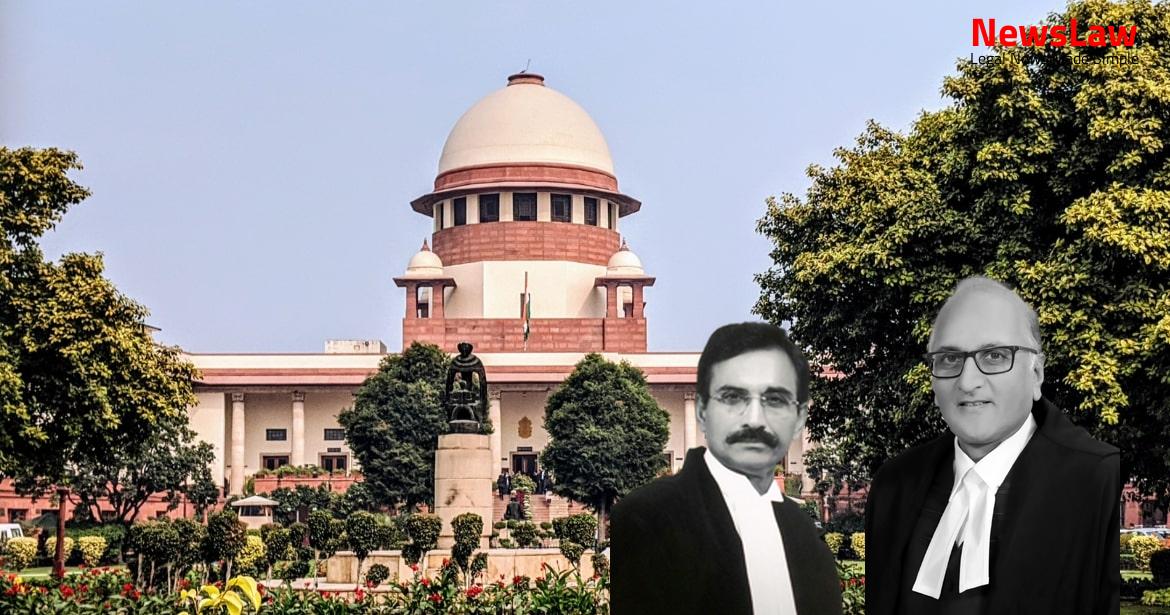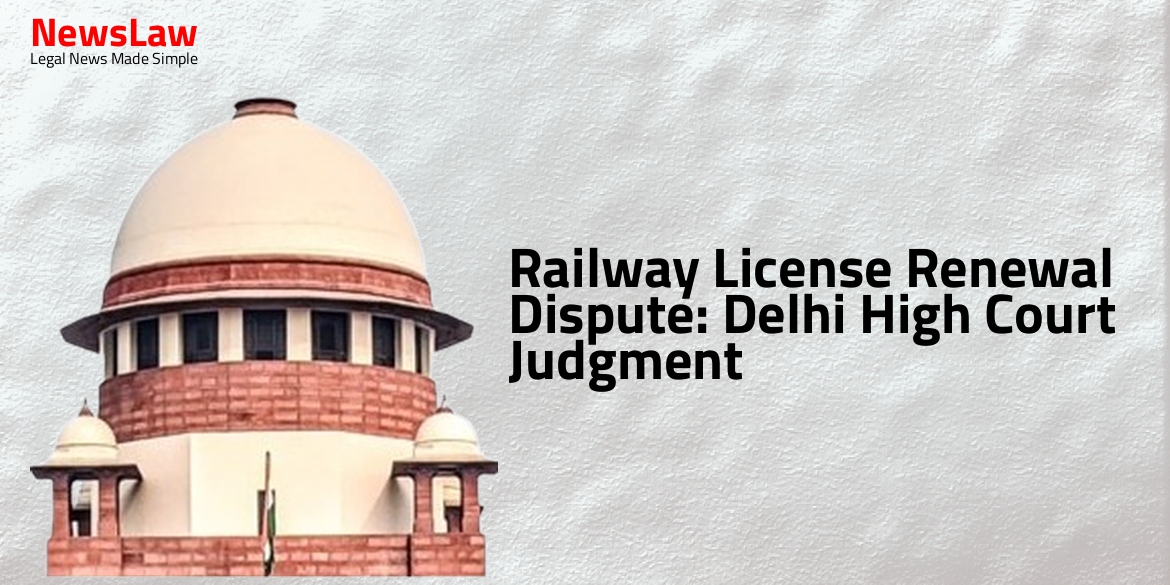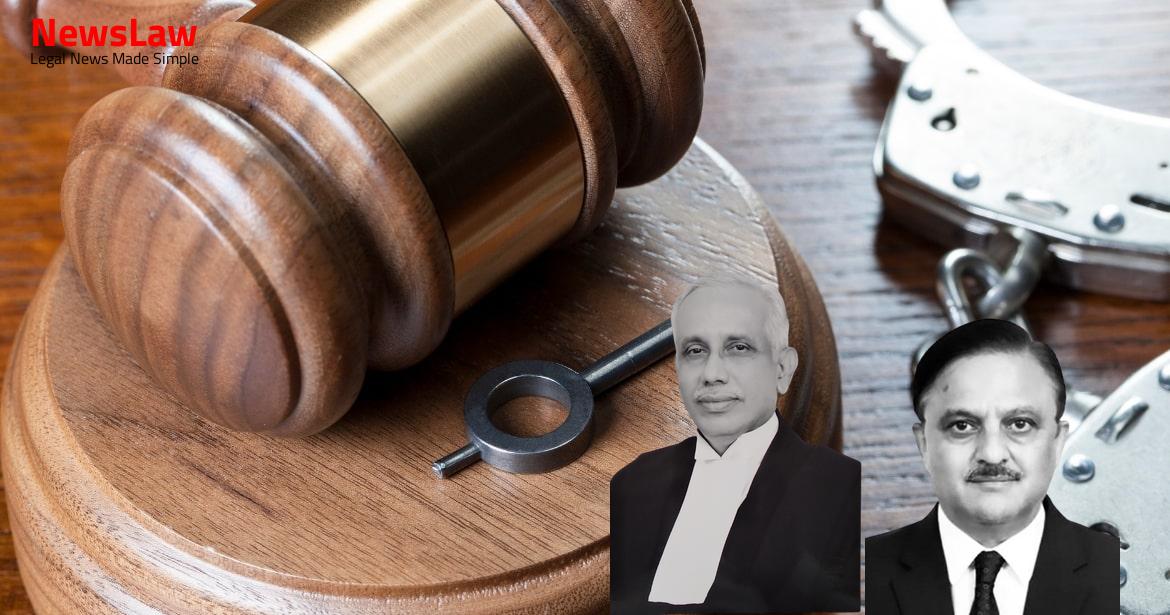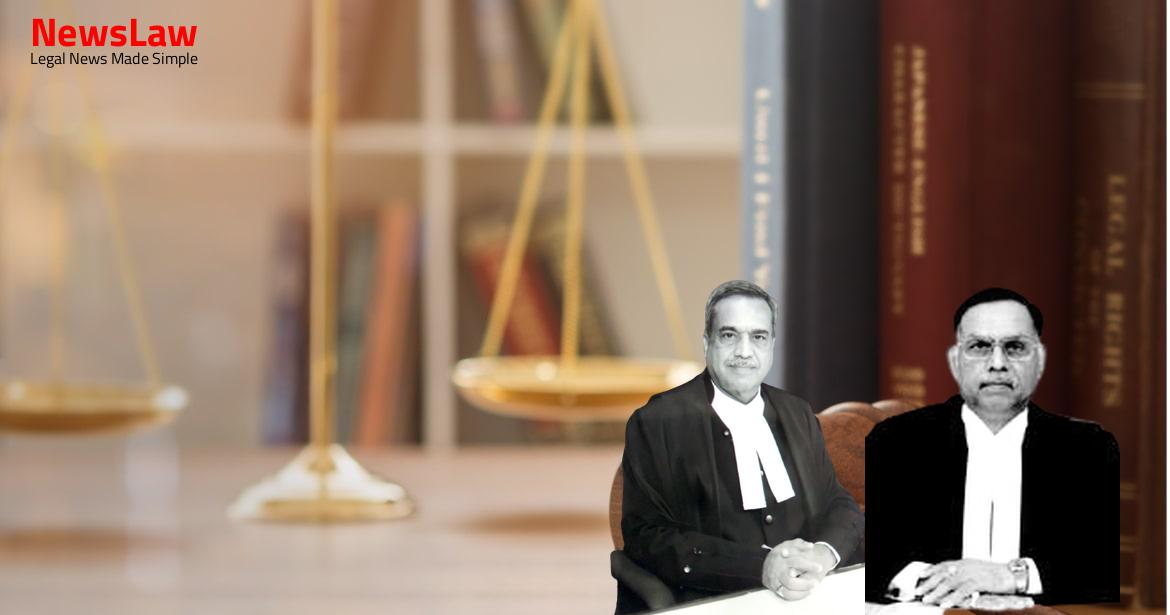Delve into the detailed judicial analysis regarding tribunal appointments and rules in our summary. The court’s emphasis on judicial independence and separation of powers in the functioning of tribunals is crucially highlighted. Gain insights into the evolution of jurisprudence and the impact of recent court decisions on the appointment process and operation of tribunals.
Facts
- The FAC held that the establishment of NCLT and NCLAT under the Companies Act, 2013 was a significant development.
- The FAC observed that the amendments to the provisions related to NCLT and NCLAT were made to address the deficiencies in the earlier Act of 1956.
- The FAC noted that the new provisions aimed to streamline the resolution process of corporate disputes and enhance the efficiency of the adjudicatory system.
- The FAC emphasized the importance of having specialized tribunals like NCLT and NCLAT for effective resolution of company law matters.
- The FAC highlighted the need for the judiciary to adapt to the changing dynamics of corporate law and ensure speedy disposal of cases.
- Appointments to the Tribunals, Appellate Tribunals, and other Authorities were to be held in accordance with respective statutes before the enactment of the Finance Act, 2017.
- The Union of India was allowed to seek modification of the order after fresh Rules were framed.
- The Central Government issued the 2020 Rules on 12.02.2020, dealing with qualification, appointment, inquiry into misbehavior, House Rent Allowance, and other Conditions of Service.
- The Union of India filed Miscellaneous Application No.1152 of 2020 seeking direction for the 2020 Rules to apply to appointments post 26.05.2017.
- Bar Associations and Tribunal Members filed applications for appointments to the Tribunals and clarifications on retrospective operation of the 2020 Rules.
- Central Government was directed to reformulate the Rules in conformity with Court’s earlier judgments and ensure non-discriminatory and uniform conditions of service.
- A Writ of Mandamus was issued to the Ministry of Law & Justice to conduct a judicial impact assessment for all Tribunals.
- The 2017 Rules were struck down for being contrary to constitutional principles and Court decisions.
Also Read: Judicial Review of Answer Key in Teacher Selection Process
Arguments
- The main issues raised in the Writ Petition are that the 2020 Rules are unconstitutional as: a) The Search-cum-Selection Committees provided for in the 2020 Rules did not conform to the principles of judicial dominance; b) Appointment of persons without judicial experience to the posts of Judicial Members/Presiding Officer/ Chairpersons is in contravention to the earlier judgments of this Court; c) The term of office of the Members for four years is contrary to the earlier decisions of this Court; d) Advocates are not being made eligible for appointment to most of the Tribunals; e) Administrative control of the executive in matters relating to appointments and conditions of service is violative of the principles of separation of powers and independence of judiciary and demonstrates non-application of mind.
- Mr. Datar submitted that Rule 9 (2) requires to be struck down as being arbitrary.
- It has been repeatedly held by this Court that the Secretaries of the sponsoring departments should not be members of the Search-cum-Selection Committee.
- The learned Amicus Curiae further submitted that Advocates should be made eligible for appointment to Single Member Tribunals, particularly to the Debt Recovery Tribunals as their experience in law can be suitably utilized.
- He suggested that Advocates with the standing of 15 years at the bar should be made eligible for being considered for appointment as judicial members to the Tribunals.
- The learned Amicus Curiae voiced serious objections to Rule 4(2) on the ground that it would be compromising judicial independence.
- He argued that the Rules cannot be given retrospective effect.
- In view of the delay in making appointments, most of such retired Judges of High Courts will normally have a very short tenure of not more than two years.
- The Attorney General had submitted that exclusion of Advocates was a matter of policy and that the eligibility condition wherever they could be considered, in some tribunals of 25 years of practice, was to bring about parity with members of the Indian Legal Service.
- The learned Amicus Curiae does not have an objection to members of Indian Legal Service who are practicing in Courts as Government Advocates to be considered for appointment as judicial members in Tribunals.
- Section 183 of the Finance Act, 2017 mandates that Rules made under Section 184 shall be effective from the appointed day, which was 26.05.2017.
- The 2017 Rules were struck down by the Court, but the Government was given an opportunity to frame new Rules, resulting in the 2020 Rules being effective from 26.05.2017.
- The Attorney General argues that the 2020 Rules should apply to all appointments made after 26.05.2017 as per the mandate of Section 183.
- Persons appointed before 26.05.2017 would be governed by the old Acts and Rules, while those appointed after would be governed by the 2017 Rules.
Also Read: Legal Analysis on Admission Denial and Seat Creation in Medical College Case
Analysis
- The Search-cum-Selection Committees as envisaged in the Rules were deemed against the constitutional scheme as they diluted the involvement of the judiciary in the appointment process of tribunal members.
- The suggestion to set up an All India Tribunal Service on the UK pattern was accepted.
- The suggestion to establish a National Tribunals Commission as a supervisory body was made to enhance the effectiveness of Tribunals and strengthen their public image. Short tenures were seen to increase executive interference, jeopardizing judicial independence.
- The Madras Bar Association challenged the constitutionality of the National Company Law Tribunal (NCLT) and the National Company Law Appellate Tribunal (NCLAT) provisions in the Companies Act, 1956.
- The 2017 Rules were found to be in contradiction with principles from previous judgments regarding member tenure and the undue influence of the executive on administrative aspects.
- A recommendation was made for the establishment of an independent supervisory body to oversee tribunal operations.
- The appointment process for judicial members to the tribunal was discussed, and the need for implementation of certain reforms to align with constitutional conventions was highlighted.
- The judgment emphasized the importance of judicial independence and separation of powers in the functioning of tribunals.
- Various court cases challenging different aspects of tribunal appointments and functioning were mentioned, showcasing the evolution of jurisprudence on this matter.
- The 2020 Rules cannot be given retrospective effect as they came into force on the date of their publication in the Official Gazette.
- The need for an independent agency to oversee the working of Tribunals was recommended by the court.
- The appointments made to the Customs Excise Sales Tax Appellate Tribunal were clarified to be for a period of five years or until the member attains the age of 62 years.
- The pendency of cases in Tribunals is increasing due to lack of personnel, which results from delays in filling vacancies upon member retirements.
- A wholly independent National Tribunals Commission was recommended to be constituted for effective oversight of the Tribunals.
- The 2020 Rules in challenge failed to ensure judicial dominance in the constitution of Search-cum-Selection Committees.
- Appointments made after the judgment in Rojer Mathew are to be governed by existing parent Acts and Rules.
- Rules for inquiries into misbehavior or incapacity of Tribunal members were provided for in Rule 8 of the 2020 Rules.
- Appointment of competent lawyers and technical members was deemed essential for judicial independence.
- Efforts were made to reformulate rules in accordance with court directions to ensure judicial independence of the Tribunals.
- The Madras Bar Association v. Union of India (2014) case had a different conclusion than the one being discussed.
- The judgment in the Madras Bar Association case is not being relied upon in the current context.
- The decision or reasoning in the Madras Bar Association case is not applicable to the current case.
- Rule 9(2) of the 2020 Rules will be amended to specify that the Vice-Chairman, Vice-Chairperson, Vice President, and other members of the Tribunals will hold office until they reach the age of sixty-seven.
- Efforts will be made by the Union of India to provide suitable housing for the Chairman, Chairperson, President, Vice-Chairman, Vice-Chairperson, Vice President, and other members of the Tribunals. If housing cannot be provided, a monthly house rent allowance of Rs. 1,50,000/- will be provided for Chairpersons or Presidents, and Rs. 1,25,000/- for other members, effective from 01.01.2021.
- The composition of the Search-cum-Selection Committees will be modified to include the Chief Justice of India or his nominee as Chairperson, the outgoing or sitting Chairman or President of the Tribunal or a retired Judge of the Supreme Court/Chief Justice of a High Court, Secretary to the Ministry of Law and Justice, Secretary to a different department nominated by the Cabinet Secretary, and the Secretary to the sponsoring or parent Ministry or Department as the Member-Secretary/Convener without a vote.
- The Government of India is obligated to follow and implement earlier judgments mandating the constitution of Search-cum-Selection Committees with specific members including the Chief Justice of India or his nominee as Chairperson, along with other designated members.
- Section 184 of the Finance Act, 2017 allows a Chairman, Chairperson, or President of the Tribunal to serve until the age of 70, aligning with the provision in Rule 9(1) and the Parliamentary mandate.
Also Read: Equitable Treatment in Time-Bound Promotions
Decision
- The Search-cum-Selection Committee shall recommend one person for appointment to each post.
- The term of Chairpersons, Vice-Chairpersons, and members of the Tribunals extended till 31.12.2020.
- Appointments directed to be made after recommendations of the interim Search-cum-Selection Committee.
- The tenure for Chairpersons, Vice-Chairpersons, and members of the Tribunal is five years with eligibility for reappointment.
- The appointments made prior to 12.02.2020 governed by parent statutes and rules, while those post-12.02.2020 subject to 2020 Rules with modifications.
- The President to continue till age of 65 years.
- The 2020 Rules to have prospective effect from 12.02.2020 with all appointments post that date in accordance with 2020 Rules.
- The terms relating to salary, benefits, allowances to be directed by the judgement.
- Appointments to Tribunals to be made within three months post completion of selection process by Search-cum-Selection Committee.
- Retirements of Chairpersons, Vice-Chairpersons, and members of the Tribunals to be in accordance with applicable rules mentioned.
- Union of India to make appointments within three months of Search-cum-Selection Committee completing the selection process.
- Any appointments made after 12.02.2020 governed by 2020 Rules with modifications directed in the judgement.
- Appointments made under 2020 Rules till the date of judgement not considered invalid if conforming to Search-cum-Selection Committees’ recommendations.
- All appointments made prior to 12.02.2020 governed by parent Acts and Rules.
Case Title: MADRAS BAR ASSOCIATION Vs. UNION OF INDIA (2020 INSC 666)
Case Number: W.P.(C) No.-000804 / 2020



